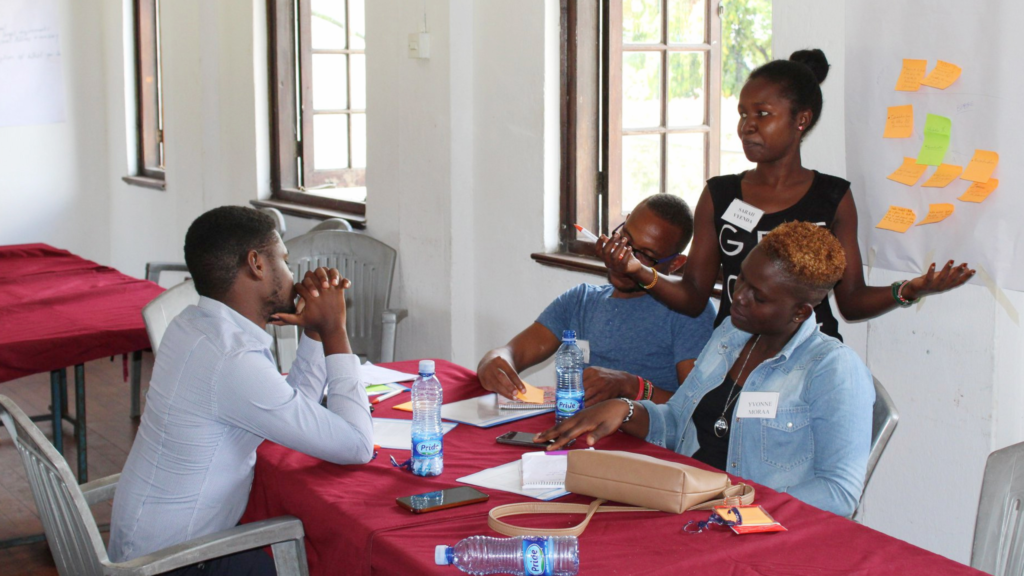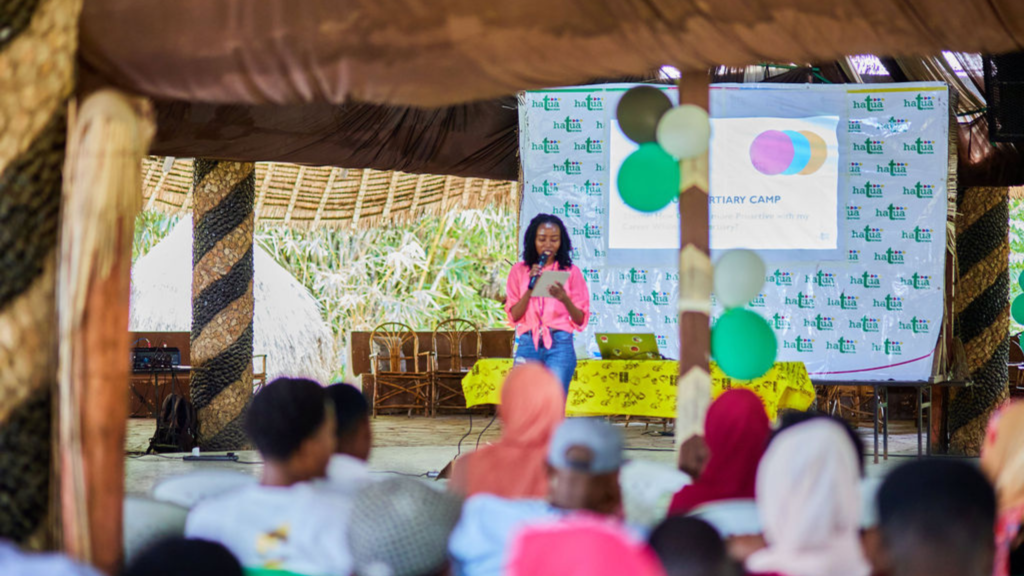2024’s International Youth Day celebration marked a significant milestone for Hatua as we launched our long-awaited open-source soft skills curriculum platform, Hatua Skills for the Future.
Meanwhile in Arusha
As the website went live on Monday, Daniel Nyanga (Hatua’s Program Manager) and Nancy Wairimu (Hatua’s Mentoring Coordinator) were presenting a workshop to showcase the portal to participants at the Inaugural EAC Education Conference, about 400km away in Arusha, Tanzania.
The conference was created to highlight “the centrality of education to Africa’s social and economic transformation.” It brought together high-level government officials, policymakers, teachers, students, development partners, civil society groups, and research institutions from EAC partner states and other African countries. Some of this year’s chief guests were the Vice President of Tanzania, Philip Mpango, and the Secretary General of the EAC, Veronica Nduva.
This year’s conference theme was: “Educate an African Fit for the 21st Century: Collective Action for Quality, Inclusive and Life-long Learning in East Africa.” Naturally, it was the perfect platform to launch our curriculum.
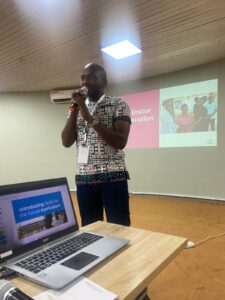
“We had an amazing audience in our launch workshop,” said Daniel. “The name we chose for this curriculum, and indeed the workshop title, intrigued quite a number of stakeholders interested in youth development and education.”
Hatua’s Skills for the Future program aims to equip students with knowledge and skills that are highly sought after in the 21st-century workplace. It contains over 100 activity-based learning sessions designed to develop competency in communication, collaboration, problem-solving, emotional intelligence, responsibility, and their accompanying sub-competencies. It also includes lesson plans, slides, and student activity packs to help with effective implementation.
Peer Learning
During their presentation, Daniel explained how the curriculum was developed. “We worked with curriculum design consultants, Education Design Unlimited, to create the version that we have now. Over the three years we have been piloting this version of the curriculum, we have delivered it to 482 students, all of whom show progressive development of the soft skills we have trained them on.”
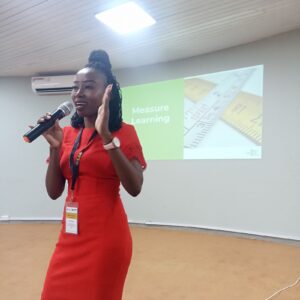
The workshop also brought to light some of the challenges peer organizations face, such as accreditation and assessment. “Fortunately, we also developed a competency matrix from which we derived rubrics that facilitators can use to observe and rate students’ competencies. At the end of each unit, students’ self-assessments, peer assessments, and facilitator observations are weighted to provide a 360-degree learning evaluation.”
The Future of Soft Skills Education
Even as the curriculum was launched, Daniel already felt confident about the potential impact the platform would have. “We are launching a curriculum whose results we have already started to see among our students. In fact, our alumni employment rate, standing at 95%, can be directly attributed to our mentoring programs, compared to the national employment rate, which is far lower,” he said.
Overall, Nancy felt that the launch was a huge success. “To have been part of the curriculum redesign process from start to finish, and to finally be able to launch it here – a space where so many people and organizations are passionate about education, especially soft skills – has been amazing,” she said after the workshop.
“I hope this curriculum transforms soft skills education, not just in Kenya, but across the entire continent. I can’t wait to see the results from organizations and schools that choose to adopt it into their programs.”
Take a look at Hatua’s Skills for the Future portal and download a session!
Help us continue the work we do by donating today.
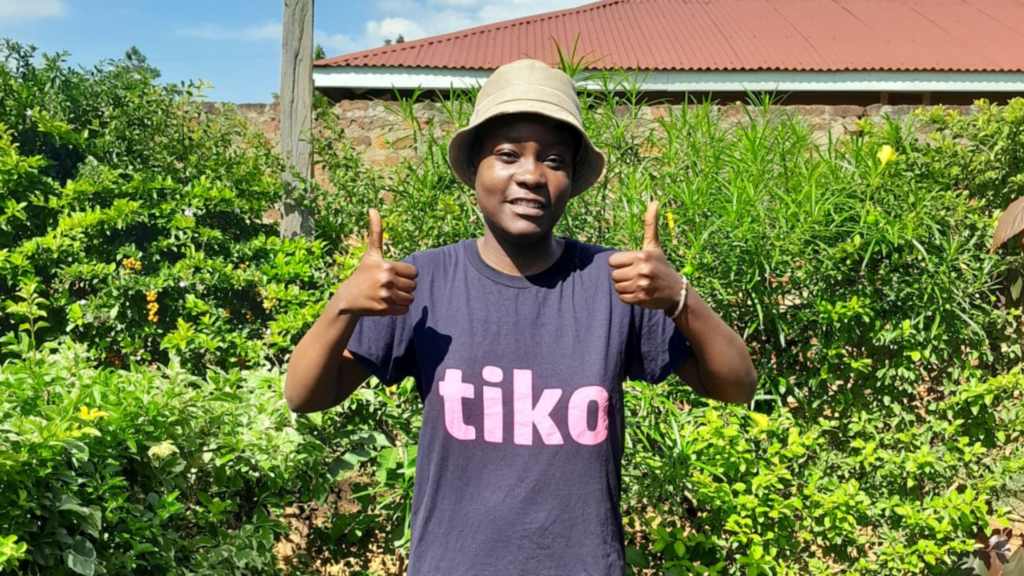
 Read More
Read More